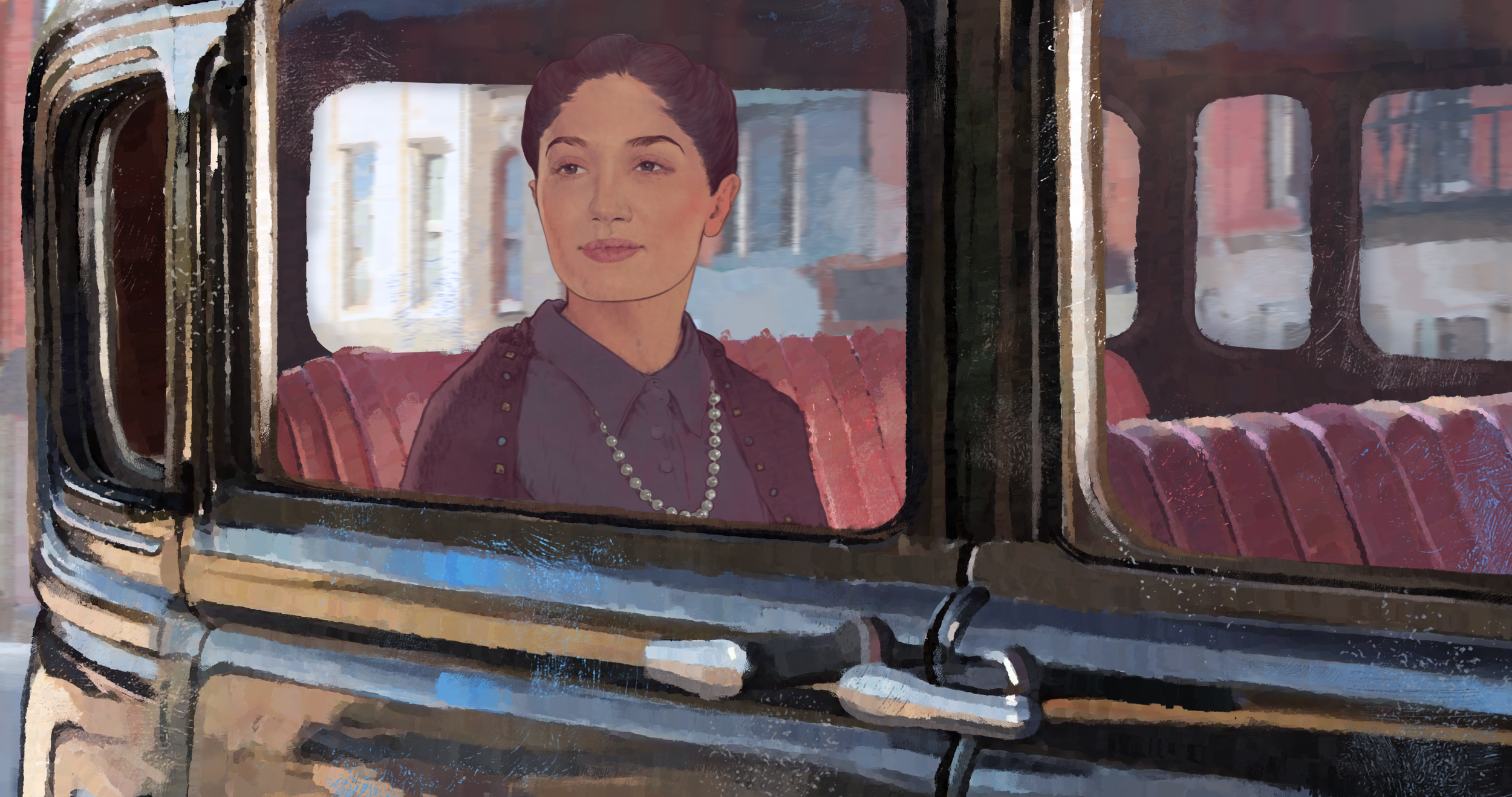UK Premiere, Armenia’s official submission to the Academy Awards, Best Animated Film at Asia Pacific Screen Awards, Runner-Up in Audience Voting at IDFA 2022
Wheelchair accessible, English subtitles, Pay-what-you-can tickets (£0-£8)
Inna Sahakyan’s Aurora's Sunrise/Արշալույսի լուսաբացը is dedicated to the life of Aurora Mardiganian. A survivor of the Armenian Genocide perpetrated by the Young Turks government of the Ottoman Empire, Aurora sought refuge in the US, where she starred in Oscar Apfel’s 1919 Hollywood adaptation of her autobiography Ravished Armenia (also known as the Auction of Souls). An immediate box office success, Ravished Armenia helped raise awareness about the humanitarian plight of Armenians in Turkey and played an important role in charity fundraising. As the diplomatic and trade relations between the US and the young Turkish Republic improved during the 1920s, the film was no longer shown and was eventually lost, and Aurora’s story — forgotten. At a time when anti-Armenian sentiments are once more on the rise in Turkey and the Caucasus, Aurora's Sunrise brings Aurora’s story back into the limelight through vivid animation, mixed with recently rediscovered fragments of Ravished Armenia and documentary footage of Aurora’s later life.
Content notes: discussions and depictions of genocide and state violence; some dehumanising language and slurs aimed at ethnic and religious groups.
Access notes: a mix of animation and archival footage (colour and black-and-white), some loud sounds (music, clanking of boots, weapons).
Curated by misha irekleh
Trailer
Director’s statement
The Armenian genocide is the enduring pain of my nation. It is my family’s pain, and it is my own pain. Though I always wanted to, I was wary of making a film about it. I was afraid to be overly sentimental, overly emotional. I was afraid of telling stories that only confirmed Armenians as a nation of victims with no historical agency and nothing but tragedy running through our veins.
That is, until I stumbled upon an interview with Aurora Mardiganian while going through archival interviews with Armenian Genocide survivors at the Zoryan Institute. I was mesmerized the first time I watched it. While painful to hear, the elderly woman appeared to grow more and more youthful as she spoke. Through her words and expressions, an incredible but ordinary heroism shone: this woman survived a genocide but refused to be a victim. She refused to be reduced to an object of history. This is the character I wanted to build in Aurora’s Sunrise, resilient, powerful and heartwarming all at once.
My mission was to create a film taking audiences beyond the cold facts of the genocide, so I decided on a dynamic combination of mediums: animation, archival interviews with Aurora Mardiganian, and digitally-restored footage from Aurora’s 1919 film Auction of Souls. The majority of the film’s runtime is animation. Animation is a very powerful medium for portraying something as difficult as trauma. It explicitly portrays the representation of an event and not the event itself, bridges this distance, and allows for the viewer to be deeply engaged with the narrative and thematic core of the story. At the same time, animation is a medium that can communicate not only the colors of the story, but even its smells, tastes, and textures. It becomes the soul of the film, and lets Aurora's now forgotten story become vivid again. It goes further than reproducing the events: it interprets them, like our brain does with memories, and allows symbols and motifs to speak loudly instead of drowning them in the utter realism of hundreds of details.
Of course, the danger of animation is that it may produce a sense of unreality — and this is why it is so crucial that the film also features archival footage of the real Aurora and that of her film: to let the woman and her work speak for itself and to remind the audience that all this really did happen.
Above all, I believe this film is important because in Aurora Mardiganian’s story we see a brave young Armenian woman who, despite enduring genocide, hunger, slavery, and exploitation, refused to be a victim. She refused to be swept away by the tides of history. It’s a timeless story of the resilience of the human spirit, the power of hope, and the importance of never giving up. In our evermore uncertain world, this kind of story should be told.
dIRECTOR’S BIOGRAPHY
Inna Sahakyan has directed and produced feature-length documentaries, documentary series, and shorts, for over fifteen years. Following her feature-length debut co-directing the award-winning Armenia’s Last Tightrope Dancer in 2010, she directed Mel and Aurora’s Sunrise, completing both international co-productions in 2022. Inna also enjoys mentoring her native Armenia’s next generation of filmmakers.
Short: Warmth (Klaudia Fortuniak, Poland, 2023)
A mother and a daughter are going to a funeral. The mother is taking away the coal furnace for scrap that day, and the daughter is wearing brown tights. The furnace turns out to be too heavy, and the tights inadequate for the ceremony. How can the two women live through their bereavement?
Content notes: depictions of grief, discussions of death.








